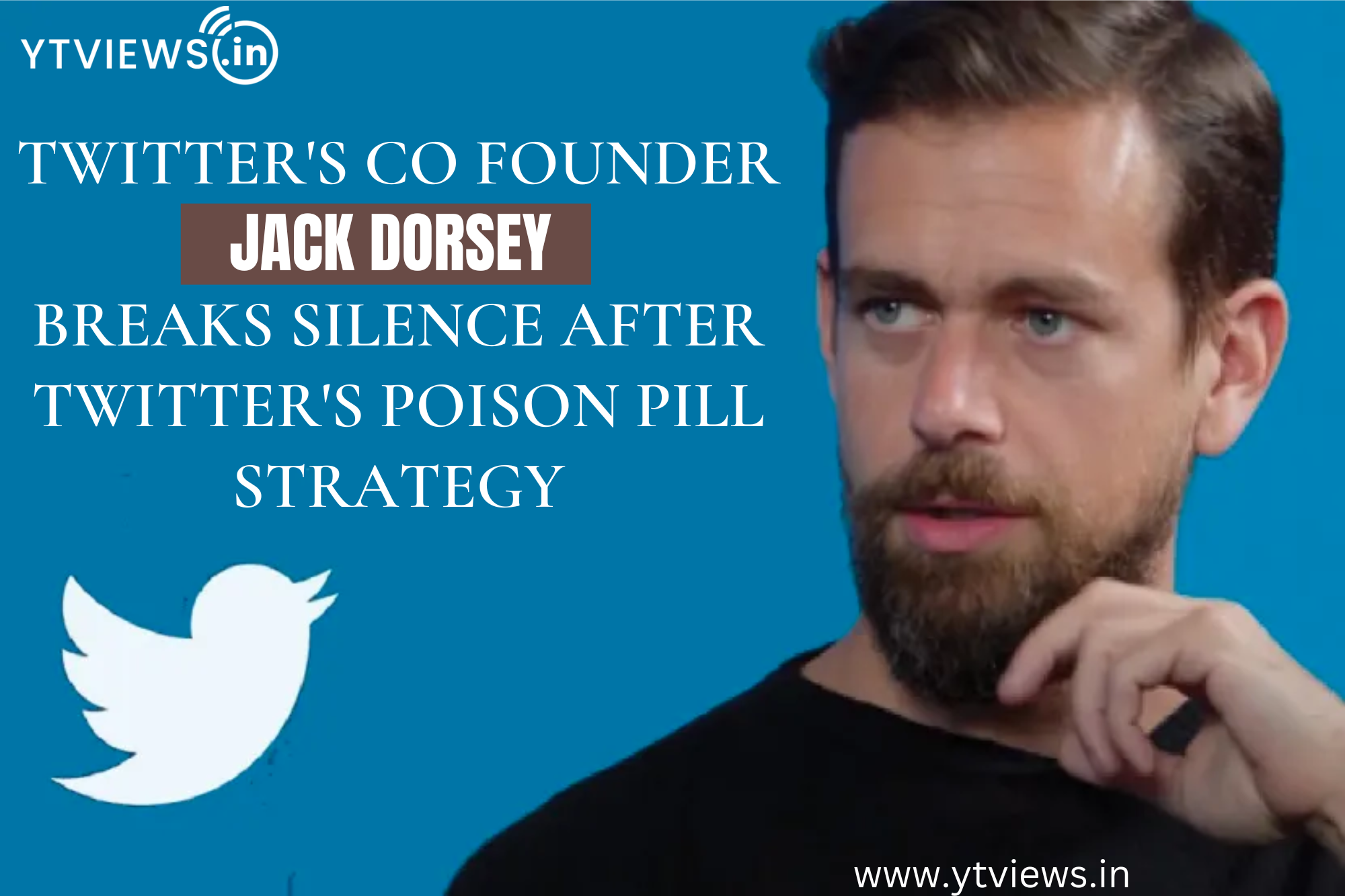Twitter’s Co-Founder Jack Dorsey Breaks Silence After Twitter’s Poison Pill Strategy
 Twitter’s co-founder Jack Dorsey lambasted the microblogging giant’s board after it adopted a “poison pill” to derail Elon Musk’s effort to take over the firm. In response to a user, Dorsey stated that the board has constantly been the company’s problem.Last November, Jack Dorsey handed over the reins to Indian-origin Parag Agrawal. However, he remains a board member with a 2.2 percent stake until next month. In addition, Elon Musk has stated that the economic interests of Twitter Inc.’s board are not aligned with shareholders after the social media company’s measures to thwart his takeover bid.
Twitter’s co-founder Jack Dorsey lambasted the microblogging giant’s board after it adopted a “poison pill” to derail Elon Musk’s effort to take over the firm. In response to a user, Dorsey stated that the board has constantly been the company’s problem.Last November, Jack Dorsey handed over the reins to Indian-origin Parag Agrawal. However, he remains a board member with a 2.2 percent stake until next month. In addition, Elon Musk has stated that the economic interests of Twitter Inc.’s board are not aligned with shareholders after the social media company’s measures to thwart his takeover bid.

The billionaire was reacting to a tweet concerning board members’ stock ownership, claiming that with Jack Dorsey’s departure, the board “together holds nil shares essentially.” Tesla Inc. CEO Elon Musk proposed $54.20 per share in cash for Twitter on Thursday, valuing the firm at $43 billion. Musk stated that it was his “best and final effort, Since early this year, the company has amassed a stake of more than 9% in Twitter.
Twitter has received acquisition interest from other parties, including technology-focused private equity company Thoma Bravo, in addition to Musk’s bid. Twitter is being advised by Goldman Sachs Group Inc. and JPMorgan Chase & Co.
Musk-Twitter Battle
Twitter established a shareholder rights plan on Friday, which might hinder Musk’s aggressive purchase offer. The plan is triggered if a party purchases 15% of the shares without prior permission. It ensures that anyone gaining control of Twitter through open market accumulation pays an adequate control premium to all shareholders.
In response to a second tweet from a user questioning if the so-called poison pill plan amounted to “criminal negligence,” Musk stated that the strategy may be “more of a worry about other prospective bidders” rather than “just” him.

A poison pill defensive method permits current shareholders to acquire more shares at a discount, effectively reducing the opposing party’s ownership position. Poison pills are frequent in firms under attack from activist investors or face a hostile takeover.
Musk has been aggressively tweeting since announcing the offer, in what looks to be a social media effort to sway public opinion supporting his proposal. Musk is one of Twitter’s top stockholders, owning 9.2 percent of the company. Vanguard Group said it’s now the company’s largest stakeholder. Saudi Prince Al-Waleed bin Talal, who turned down Elon Musk’s offer, owns around 5.2 percent of the company.











































